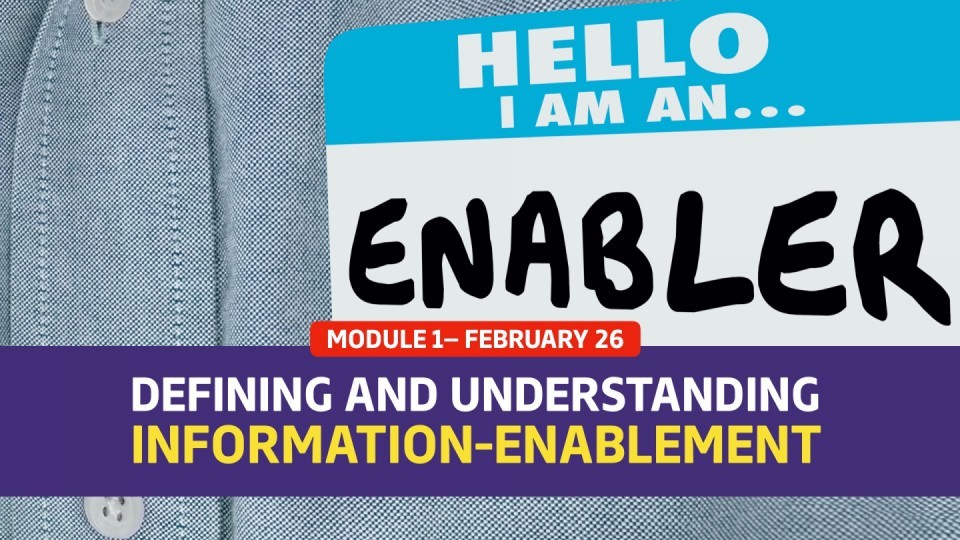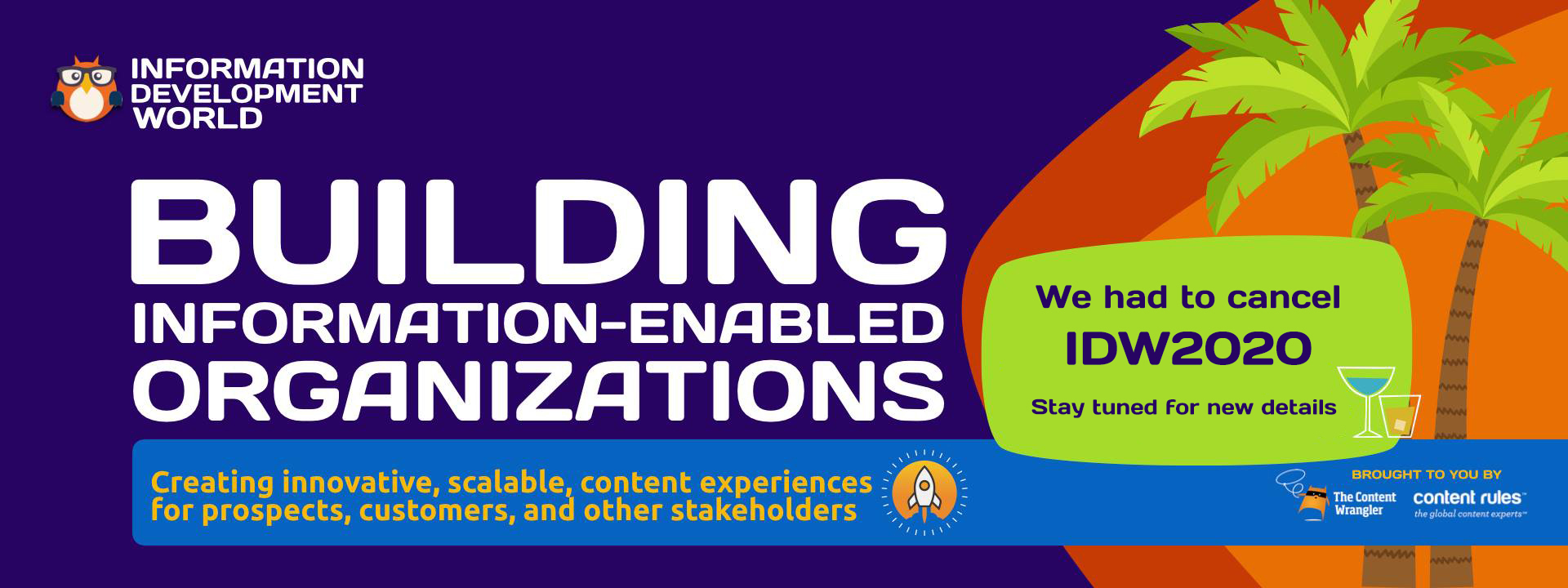Modules • Wednesday, February 26

Module 1 — Defining and Understanding Information-Enablement
To meet the needs of a global, increasingly digitally-savvy audiences at scale, your organization must become information-enabled. Content production must become part of operations. The presentations featured in this portion of the conference are designed to help you rethink how you create, manage, localize, augment, and deliver information to the smart machines people rely on to find answers to their questions.

Module 2 — The Business Case for Intelligent Content
Intelligent content is information that is intentionally designed to be both readable by humans and processable by machines. When implemented correctly, it can help us deliver the right pieces of content to the right people at the right time in the format they require and on the devices of their choosing. Intelligent content makes information more useful. This portion of the conference aims to help attendees understand the five characteristics that make content intelligent (modular, structured, reusable, format-free, and semantically rich) and the capabilities we gain from adding intelligence to our content (discoverability, reconfigurability, and adaptability).

Module 3 — The Art and Science of Content Experience Design
Exceptional content experiences aren't accidents. They're intentionally designed. They're artfully assembled and informed by science. That's why we invited information development experts with a focus on experience to help you understand the art and science behind creating exceptional content experiences.

Module 4 — Personalizing Content Experiences
Getting personalization right requires a level of digital maturity that many organizations are struggling to develop. That's why we've dedicated a portion of the conference to help attendees understand the need for personalization and discover the strategies, tactics, and tools being used by organizations providing exceptional personalized content experiences today.
Modules Thursday, February 27

Module 1 — Creating Exceptional Content Experiences
The goal of Information architecture (IA) is to help people understand their surroundings and find what they’re looking for. The goal of plain language is help ensure the content we produce is clear and concise and easily understandable the first time a readers or listener encounters it. To deliver exceptional customer experiences with content, we must get IA and plain language right. That's why we've dedicated a portion of the conference to demystifying the interdependencies between people, systems, content, and context. These IA- and plain-language related sessions will help you better understand how some organizations leverage these tools to provide content to both the smart machines and to the people that require it.

Module 2 — Developing and Managing Voice and Tone
Organizations around the globe are struggling to develop the right voice and tone. Once they develop it, the work of maintaining and managing it begins. The presentations featured in this portion of the conference are designed to provide you with a foundation for creating, maintaining, and using a consistent voice and tone that will help you connect your content with prospects, customers, and other stakeholders.

Module 3 — Communication Issues That Impact Success
Information development teams rely upon a wide variety of tools to assist them in producing relevant content experiences that scale. The presentations featured in this portion of the conference showcase some of the communication issues that can impact the success of modern information development shops.
View the presentations in this module.

Module 4 — Scaling and Governing Content Operations
Learn how one company is attempting to move toward a better way of working. It’s called content operations (#ContentOps) — an emerging operational model for content production that helps us reduce inefficiencies and risks, automate repeatable processes, scale up our outputs, and use what we learn to create actionable business insights.
View the presentations in this module.
Sponsors




